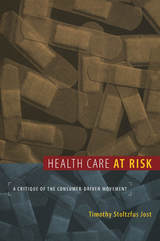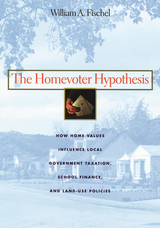5 start with H start with H

This volume analyzes the politics of hazardous waste siting and explores promising new strategies for siting facilities. Existing approaches to waste siting facilities have almost entirely failed, across all industrialized countries, largely because of community or NIMBY (Not in My Backyard) opposition. This volume examines a new strategy, voluntary choice siting—a process requiring mutual decisions negotiated between facility developers and the host communities. This bottom-up approach preserves democratic rights, recognizes the importance of public perceptions, and addresses issues of equity.
In this collection, an interdisciplinary group of experts probes recent examples of waste facilities siting in the United States, Canada, Germany, and Japan. Both the successes and the failures presented offer practical insights into the siting process. The book includes an introductory review of the literature on facility siting and the NIMBY phenomenon as well as instructive essays on the use of voluntary processes in facilities siting.
This book will be of value to policymakers, industry, and environmental groups, as well as to those working in environmental studies and engineering, political science, public health, geography, planning, and business economics.

In this concise, straightforward analysis, Jost challenges the historical and theoretical assumptions on which the consumer-driven health care movement is based and reexamines the empirical evidence that it claims as support. He traces the histories of both private health insurance in the United States and the CDHC movement. The idea animating the drive for consumer-driven health care is that the fundamental problem with the American health care system is what economists call “moral hazard,” the risk that consumers overuse services for which they do not bear the cost. Jost reveals moral hazard as an inadequate explanation of the complex problems plaguing the American health care system, and he points to troubling legal and ethical issues raised by CDHC. He describes how other countries have achieved universal access to high-quality health care at lower cost, without relying extensively on cost sharing, and he concludes with a proposal for how the United States might do the same, incorporating aspects of CDHC while recognizing its limitations.

Just as investors want the companies they hold equity in to do well, homeowners have a financial interest in the success of their communities. If neighborhood schools are good, if property taxes and crime rates are low, then the value of the homeowner’s principal asset—his home—will rise. Thus, as William Fischel shows, homeowners become watchful citizens of local government, not merely to improve their quality of life, but also to counteract the risk to their largest asset, a risk that cannot be diversified. Meanwhile, their vigilance promotes a municipal governance that provides services more efficiently than do the state or national government.
Fischel has coined the portmanteau word “homevoter” to crystallize the connection between homeownership and political involvement. The link neatly explains several vexing puzzles, such as why displacement of local taxation by state funds reduces school quality and why local governments are more likely to be efficient providers of environmental amenities. The Homevoter Hypothesis thereby makes a strong case for decentralization of the fiscal and regulatory functions of government.

How to Save a River presents in a concise and readable format the wisdom gained from years of river protection campaigns across the United States. The book begins by defining general principles of action, including getting organized, planning a campaign, building public support, and putting a plan into action. It then provides detailed explanations of how to:
- form an organization and raise money
- develop coalitions with other groups
- plan a campaign and build public support
- cultivate the media and other powerful allies
- develop credible alternatives to damaging projects

In the 1990s a nationwide crime wave overtook Côte d’Ivoire. The Ivoirian police failed to control the situation, so a group of poor, politically marginalized, and mostly Muslim men took on the role of the people’s protectors as part of a movement they called Benkadi. These men were dozos—hunters skilled in ritual sacrifice—and they applied their hunting and occult expertise, along with the ethical principles implicit in both forms of knowledge, to the tracking and capturing of thieves. Meanwhile, as Benkadi emerged, so too did the ethnic, regional, and religious divisions that would culminate in Côte d’Ivoire’s 2002–07 rebellion.
Hunting the Ethical State reveals how dozos worked beyond these divisions to derive their new roles as enforcers of security from their ritual hunting ethos. Much as they used sorcery to shape-shift and outwit game, they now transformed into unofficial police, and their ritual networks became police bureaucracies. Though these Muslim and northern-descended men would later resist the state, Joseph Hellweg demonstrates how they briefly succeeded at making a place for themselves within it. Ultimately, Hellweg interprets Benkadi as a flawed but ingenious and thoroughly modern attempt by non-state actors to reform an African state.
READERS
Browse our collection.
PUBLISHERS
See BiblioVault's publisher services.
STUDENT SERVICES
Files for college accessibility offices.
UChicago Accessibility Resources
home | accessibility | search | about | contact us
BiblioVault ® 2001 - 2024
The University of Chicago Press









